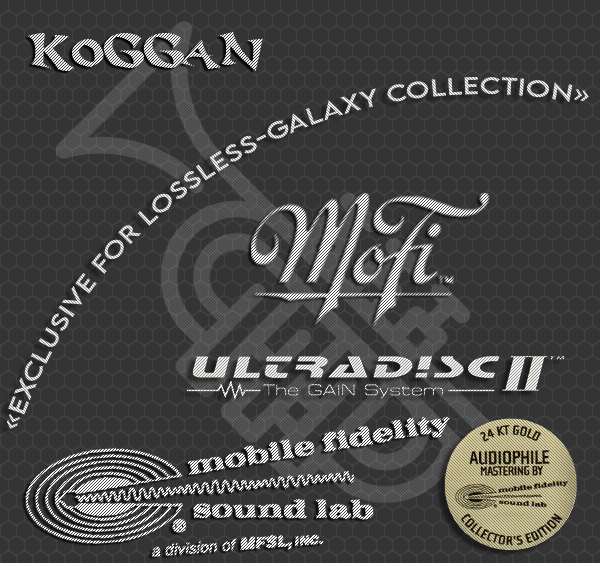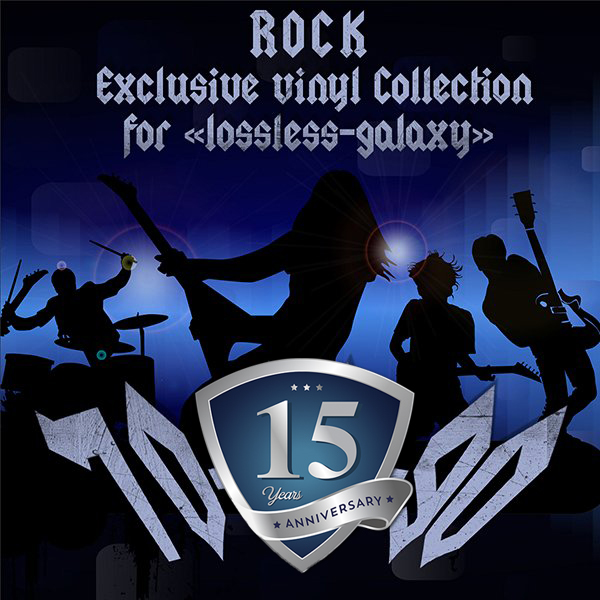Indren - Duskborn 2025
Исполнитель: Indren Альбом: Duskborn Жанр: Atmospheric Black Metal Год: 2025 Страна: Italy (Borgosesia (Valsesia) / Biella, Piedmont) Лейбл: Naturmacht Productions Формат: FLAC (tracks) Official DR value: DR9 Разрядность: 24bit / 44.1kHz Stereo Размер: 530 MB Инфо: bandcamp Залито на: XFile (3% восстановление) «Exclusive for Lossless-Galaxy»
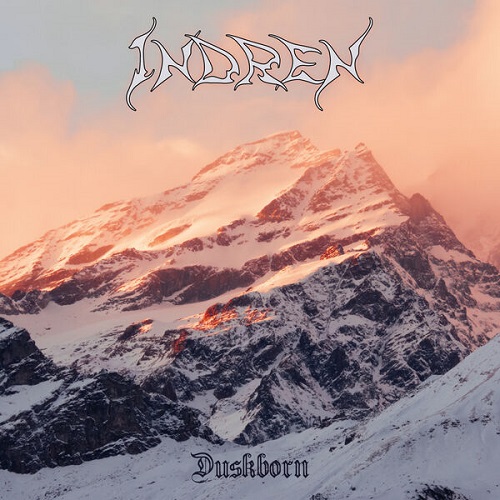
Indren - Duskborn 2025
Исполнитель: Indren Альбом: Duskborn Жанр: Atmospheric Black Metal Год: 2025 Страна: Italy (Borgosesia (Valsesia) / Biella, Piedmont) Лейбл: Naturmacht Productions Формат: FLAC (tracks) Official DR value: DR9 Разрядность: 24bit / 44.1kHz Stereo Размер: 530 MB Инфо: bandcamp Залито на: XFile (3% восстановление) «Exclusive for Lossless-Galaxy»
04 09, 2025
Pilgrimage - From Amber to Sun 2025
Исполнитель: Pilgrimage Альбом: From Amber to Sun Жанр: Doom Metal, Death Metal Год: 2025 Страна: International (The Hague, Netherlands / Malta) Лейбл: Dark Skies Coming Recordings Формат: FLAC (tracks) Official DR value: DR7 Разрядность: 24bit / 44.1kHz Stereo Размер: 568 MB Инфо: bandcamp Залито на: XFile (3% восстановление) «Exclusive for Lossless-Galaxy» Pilgrimage is an international Doom-Death metal band formed in 2018 between Malta and The Netherlands. The band is a collaboration
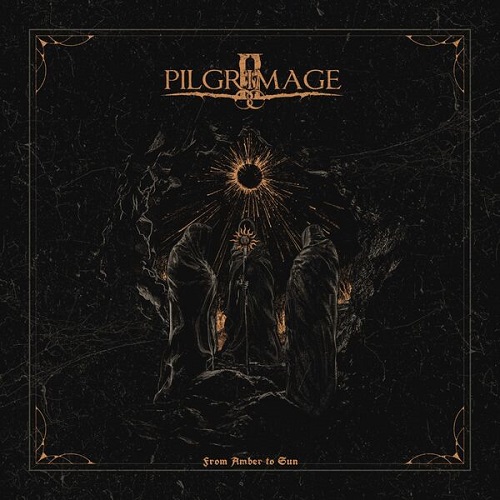
Pilgrimage - From Amber to Sun 2025
Исполнитель: Pilgrimage Альбом: From Amber to Sun Жанр: Doom Metal, Death Metal Год: 2025 Страна: International (The Hague, Netherlands / Malta) Лейбл: Dark Skies Coming Recordings Формат: FLAC (tracks) Official DR value: DR7 Разрядность: 24bit / 44.1kHz Stereo Размер: 568 MB Инфо: bandcamp Залито на: XFile (3% восстановление) «Exclusive for Lossless-Galaxy» Pilgrimage is an international Doom-Death metal band formed in 2018 between Malta and The Netherlands. The band is a collaboration
04 09, 2025
Helloween - Giants & Monsters (2025)
rip by Boris1 Performer: Helloween Album: Giants autoplay; clipboard-write; encrypted-media; gyroscope; picture-in-picture; web-share" referrerpolicy="strict-origin-when-cross-origin" allowfullscreen title="HELLOWEEN - This Is Tokyo (Official Music Video)">
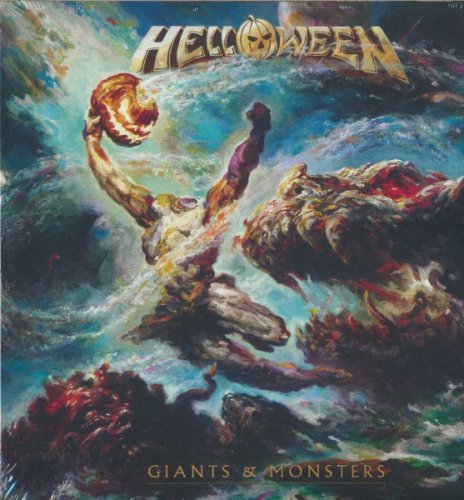
Helloween - Giants & Monsters (2025)
rip by Boris1 Performer: Helloween Album: Giants autoplay; clipboard-write; encrypted-media; gyroscope; picture-in-picture; web-share" referrerpolicy="strict-origin-when-cross-origin" allowfullscreen title="HELLOWEEN - This Is Tokyo (Official Music Video)">
03 09, 2025
Жанры
Lossless Galaxy Release
Русская музыка
--Поп
--Рок
--Панк
--Альтернатива
--Металл
--Рэп, Хип-Хоп, R'n'B
--Джаз и Блюз
--Фолк
--Шансон, Авторская песня
--СССР
Зарубежная музыка
--Pop
--Rock
--Hard Rock
--Progressive & Art-Rock
--Pop-Rock & Soft Rock
--Instrumental Rock
--Heavy, Traditional, Industrial Metal
--Power, Gothic, Sympho Metal
--Thrash, Speed, Groove, Modern Metal
--Death, Melodic Death, Doom, Dark Metal
--Black, Pagan, Folk, Viking Metal
--Alternative
--Punk
--Disco, Eurodance
--Rap, Hip Hop, R'n'B
--Reggae, Ska, Dub
--Jazz, Blues, Soul
--Folk, Country, Ethnic
--Electronic, Ambient, New Wave
--House, Techno, Trance
Другие жанры
--New Age, Relax, Meditative & Flamenco
--Chillout, Lounge, Downtempo, Trip-Hop
--Drum & Bass, Jungle, Breakbeat, IDM
--Classical / Классическая музыка
--Soundtrack
--Музыкальные сказки
Vinyl Rip
HI-Res / DVD-Audio / DTS
--SACD
--DSD
--DVD-Audio
Сборники Lossless-Galaxy
Альбомы 2022
Альбомы 2023
Альбомы 2024
Теги
1st Press 2022 2023 2024 2025 70... AOR Black Metal Blues Blues Rock Bootleg Series Classic Rock Death Metal Discography Exclusive for Lossless-Galaxy Folk Rock Fusion Hard Rock Heavy Metal Hi-Res Japanese Edition Jazz Jazz Rock lossless Melodic Death Metal Melodic Rock Modern Electric Blues Pop Pop Rock Power Metal Prog Rock Progressive Metal Progressive Rock Psych Rock Psychedelic Rock Rock SACD Symphonic Metal Thrash Metal Дискографии от KoGGaN
Архивы
Опрос
В каком формате хотели бы видеть релизы на сайте ?
 Автор: ALLexxess, 12 июня 2023, Комментариев: 4, Просмотров: 14 291
Автор: ALLexxess, 12 июня 2023, Комментариев: 4, Просмотров: 14 291Groundhogs • Thank Christ For Groundhogs: The Liberty Years 1968-1972 • 3 × CD Box Set Liberty / EMI Records 2010
Lossless Galaxy Release
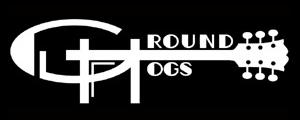
Groundhogs ● Thank Christ For Groundhogs: The Liberty Years 1968-1972
3 × CD Box Set Liberty / EMI Records
3 × CD Box Set Liberty / EMI Records
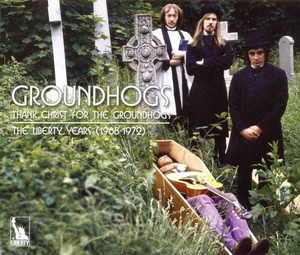
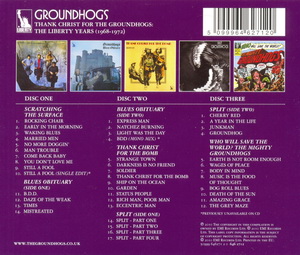
Исполнитель:
Groundhogs
Box:
Thank Christ For Groundhogs: The Liberty Years 1968-1972
(3 × CD Box Set Liberty / EMI Records)
Includes Albums:
♪ 1968 Scratching The Surface ● ♪ 1969 Blues Obituary
♪ 1970 Thank Christ For The Bomb ● ♪ 1971 Split
♪ 1972 Who Will Save The World?
Информация:
Liberty / EMI Records • 3 × CD in one Jewel Case
Ⓟ 2010 EMI Records Ltd. / © 2010 EMI Records Ltd.
Printed in The EU
Catalog Box: 50999 646271 2 0
Catalog CDs:
CD1 - 50999 646272 2 9
CD2 - 50999 646273 2 8 / CD3 - 50999 646274 2 7
Label Code: LC0542
Жанр: Rock / Blues Rock / Progressive Hard Rock / Classic Rock
Год: 2010
Формат: FLAC / Level 8 (img + *cue + log, AccurateRip)
Качество: lossless
Covers: format PNG 600dpi, full scans
Размер: ~ 1,56 Gb
Пароль : 1965
• • • • • • • • • • • • • • • • • • • • • • • • • • • • • • • •
Залито на: xFile.cloud, GigaPeta.com (5% восстановление)
Groundhogs
Box:
Thank Christ For Groundhogs: The Liberty Years 1968-1972
(3 × CD Box Set Liberty / EMI Records)
Includes Albums:
♪ 1968 Scratching The Surface ● ♪ 1969 Blues Obituary
♪ 1970 Thank Christ For The Bomb ● ♪ 1971 Split
♪ 1972 Who Will Save The World?
Информация:
Liberty / EMI Records • 3 × CD in one Jewel Case
Ⓟ 2010 EMI Records Ltd. / © 2010 EMI Records Ltd.
Printed in The EU
Catalog Box: 50999 646271 2 0
Catalog CDs:
CD1 - 50999 646272 2 9
CD2 - 50999 646273 2 8 / CD3 - 50999 646274 2 7
Label Code: LC0542
Жанр: Rock / Blues Rock / Progressive Hard Rock / Classic Rock
Год: 2010
Формат: FLAC / Level 8 (img + *cue + log, AccurateRip)
Качество: lossless
Covers: format PNG 600dpi, full scans
Размер: ~ 1,56 Gb
Пароль : 1965
• • • • • • • • • • • • • • • • • • • • • • • • • • • • • • • •
Залито на: xFile.cloud, GigaPeta.com (5% восстановление)
With a career that spans an impressive five decades, the Groundhogs are a veritable British blues-rock institution. Originally forming in 1963, with a name borrowed from a John Lee Hooker song, they would in fact back Mr Hooker on his 1964 UK tour, a service they performed for a number of visiting blues legends. With a line-up cemented around Peter Cruickshank on bass guitar, Ken Pustelnik on drums and fronted by singer, guitarist and principle songwriter Tony (T.S.) McPhee, this bluesy power trio were joined by harmonica toting Steve Rye for their full length debut, Scratching The Surface released on Liberty Records in 1968. With a reputation hard won by their incessant touring schedule, the band recorded Blues Obituary as a three piece in 1969, followed by Thanks Christ For The Bomb (UK No.9 in 1970), then hitting No.5 with their most successful record, Split, in 1971 and rounded off by the fabulously titled Who Will Save The World? The Mighty Groundhogs (UK No.8 in 1972). As well as their entire first five albums, Thank Christ For The Groundhogs: The Liberty Years (1968-1972) also includes a radio edit of early single ’Still A Fool’ plus a rare mono mix of ’B.D.D’, both appearing on CD for the first time.
hmv.com
EMI’s 2010 set Thank Christ for the Groundhogs: The Liberty Years (1968-1972) is an excellent budget-line set that contains the band’s five albums for Liberty - Scratching the Surface, Blues Obituary, Thank Christ for the Bomb, Split, and Who Will Save the World? The Mighty Groundhogs - on a three-disc set.
allmusic.com
’T’Hogs’ first five go into one. The enduring reputation of the Groundhogs rests on three remarkable albums recorded in the early 70s. ’Thank Chris For The Bomb’, ’Split’ and ’Who Will Save The World?’ saw the band evolve…into a speed-crazed, post-psyche power explosion.’
Classic Rock, 2010
’Not just great musicians, the Groundhogs were also acute songwriters: and having sketched images of war, class obedience, suburban life, the band’s torrential playing was ripe to break free from them…The high points of their campaign’
Uncut, 2010

en.wikipedia.org
Groundhogs are a British rock band founded in late 1963, that toured extensively in the 1960s, achieved prominence in the early 1970s and continued sporadically into the 21st century. Originally formed in 1962 as The Dollar Bills by brothers Pete and John Cruickshank (born in 1943, in Calcutta, West Bengal, India) in New Cross, London, Tony McPhee, the lead guitarist in an instrumental group called the Shcenuals, joined the group later that same year. McPhee steered them towards the blues and renamed them after a John Lee Hooker song, "Groundhog’s Blues". John Cruickshank suggested they became John Lee’s Groundhogs when they backed John Lee Hooker on his 1964 UK tour: they later supplemented Little Walter, Jimmy Reed and Champion Jack Dupree when they toured the UK. McPhee featured on Dupree’s From New Orleans to Chicago (1966) alongside Eric Clapton. The Groundhogs issued "Shake It" b/w "Rock Me" on the Interphon record label in January 1965. Their line-up on their first album, Scratchin’ the Surface, released in November 1968, consisted of Tony McPhee (born Anthony Charles McPhee, 22 March 1944, at Redlands House near Humberston, Lincolnshire, England) as singer and guitarist; bassist Peter Cruickshank (born 2 July 1945, in Calcutta, West Bengal, India); Ken Pustelnik on drums (born 13 March 1946 on a farm near Blairgowry, Angus, Scotland) and Steve Rye on harmonica (born 8 March 1946 in London - died 14 July 1992, in London). In 1969, the single "BBD" (Blind Deaf Dumb) flopped in the UK but hit number one in Lebanon. The group’s album releases Thank Christ For The Bomb (May 1970); Split (March 1971); and Who Will Save the World? The Mighty Groundhogs (March 1972), recorded as a trio without Rye, all reached the Top 10 in the UK Albums Chart.[2] Split reached number 5, spending 27 weeks in the UK Albums Chart and achieved gold record status, while a single release from the album, "Cherry Red", was featured on BBC Television’s Top of the Pops programme on 22 April 1971. They supported The Rolling Stones on their 1971 British tour at the request of Mick Jagger and released an album of their live set on the Stones tour, recorded at Leeds University and called Live at Leeds. All these albums and live shows were performed by the classic power trio of Cruickshank, McPhee and Pustelnik. 1974’s album Solid saw a last return to the charts. After breaking up in 1976 they came back as a largely live act almost a decade later with a different line-up. At times in the 1990s McPhee alternated two line-ups, one with a second guitarist. After years of performing and recording for a loyal following, original manager Roy Fisher put together a short-lived ’original line-up’ to celebrate their fortieth anniversary. McPhee left the band again in order to pursue an acoustic career, leaving Cruickshank and Pustelnik to continue, subsequently forming ’The Groundhogs Rhythm Section’ with invited frontmen, latterly with Eddie Martin, while McPhee embarked on a major tour in 2004 with Edgar Winter and Alvin Lee and issued an acoustic blues album Blues at Ten. McPhee put together a new band in 2007, with long-time Groundhogs bassist Dave Anderson (ex-Hawkwind) and Marco Anderson on drums. This trio toured England in 2008 with Focus and Martin Turner’s Wishbone Ash. The 2009 line-up of Tony McPhee’s Groundhogs comprised McPhee, Anderson and previous long-term drummer Mick Jones. The Groundhogs Rhythm Section’s latest recruit, Bob Bowles (guitar, vocals), joined Ken Pustelnik and Pete Cruickshank in March 2010.
ru.wikipedia.org
The Groundhogs - британская рок-группа, образовавшаяся в конце 1963 года и исполнявшая - с конца 1960-х годов - тяжёлый блюз-рок с элементами прогрессивного рока, хеви-метала (позже - соула и ритм-энд-блюза). Одно время группу, которую возглавлял певец, гитарист и автор песен Т. С. (Тони) Макфи (T.S. McPhee), критики ставили в один ряд с Cream - в пользу этого сравнения работало и некоторое сходство Макфи-вокалиста с Джеком Брюсом. Однако The Groundhogs обладали и некоторыми своеобразными чертами: склонностью к неожиданным и продолжительным джэмам, способностью создавать нестандартные, часто острополитические тексты («Thank Christ for the Bomb»), преклонением перед Джоном Ли Хукером (само название группы было заимствовано из песни последнего) и экспериментами по соединению арт-рока с хеви-металом на традиционной блюзовой основе. В США группа The Groundhogs остались практически неизвестны, но в Великобритании три их альбома в начале 1970-х годов поднимались в первую десятку UK Albums Chart История коллектива началась в 1962 году, когда братья Пит и Джон Крукшенки (Pete, John Cruickshank) образовали в Лондоне группу The Dollar Bills. Год спустя к ним присоединился Тони Макфи, гитарист инструментального ансамxxx The Shcenuals. Именно он переориентировал группу на блюз и переименовал её в честь песни Джона Ли Хукера «Groundhog’s Blues». Группа сопровождала Хукера в британском турне 1964 года, временно - по предложению Джона Крукшенка - переименовавшись в John Lee’s Groundhogs. Позже именно Groundhogs выступали с гастролировавшими в стране Литтл Уолтером, Джимми Ридом и Чемпионом Джеком Дюпри. Хукер же остался сотрудничеством с группой так доволен, что приглашал её во все свои следующие британские поездки, причём предпочитал путешествовать в её фургоне Commer. В одном из своих интервью того времени она назвал «британской блюзовой группой номер один». Тогда же и Чемпион Джек Дюпри в интервью Melody Maker говорил, что Groundhogs - лучшая группа из всех, с кем ему приходилось играть. В январе 1965 года The Groundhogs дебютировали с синглом «Shake It» («Rock Me» - на обороте), вышедшем на Interphon Records. В эти дни группа исполняла мягкий блюз-рок с отчётливо выраженным ритм-энд-блюзовым оттенком и элементами музыки соул. Позже в том же году The Hogs (так вскоре стали сокращённо их называть) в качестве аккомпанирующего ансамxxx записали с Джоном Ли Хукером альбом, который вышел сначала под заголовком John Lee Hooker, затем был перевыпущен как Hooker & the Hogs. В 1966 году Чемпион Джек Дюпри пригласил Макфи (вместе с Эриком Клэптоном) к участию в записи своего альбома From New Orleans to Chicago. Тогда же вышли и два сольных сингла Макфи: «Ain’t Gonna Cry No More» и «You Don’t Love Me». В 1966 году Groundhogs переименовались в Herbal Mixture; это изменение знаменовало и соответствующий стилистический сдвиг - от блюза в сторону психоделии. Группа выпустила два сингла: «A Love That’s Died» и «Machines», второй из которых позже издавался в компиляциях психоделического раритета, а также на CD-сборнике ранних записей Groundhogs, выпущенном Distortions Records. После распада Herbal Mixture Макфи некоторое время сотрудничал с John Dummer Blues Band; вскоре, однако, Groundhogs реформировались - по инициативе Эндрю Лодера (Andrew Lauder), руководителя отдела A&R United Artists Records. К моменту начала работы над дебютным альбомом группа работала в составе: Макфи, Питер Крукшенк, Кен Пустелник (Ken Pustelnik, ударные), и Стив Рай (Steve Rye, гармоника). Альбом Scratchin’ the Surface вышел на Liberty Records в ноябре 1968 года. За ним последовал сингл «BBD» (Blind Deaf Dumb) в 1969 году; в Британии он успеха не имел, но возглавил чарты в Ливане. Второй альбом Blues Obituary был записан уже без Стива Рая; звучание его было отмечено влиянием прогрессив. Для третьего альбома Thank Christ for the Bomb Тони Макфи сам написал все песни. Успеху пластинки способствовал Джон Пил: после того, как песня «Soldier» прозвучала в радиоэфире, альбом стал подниматься в чартах, достиг #9 в UK Charts и разошёлся тиражом 30 000 экземпляров. Творческий и коммерческий пик The Groundhogs ознаменовал третий альбом Split; он поднялся до #5 в чартах и (согласно истории группы на официальном сайте), возглавил бы списки, если бы не прокол рекорд-компании, которая вовремя не поставила на склады продукцию, которая оказалась распроданной неожиданно быстро. Пластинка продержалась в чартах полгода, разошлась 100-тысячным тиражом и заняла шестое место в списках британских бестселлеров года. В том же году The Groundhogs провели турне с Rolling Stones. Концертные записи, сделанные продюсером Глином Джонсом и выданные Тони Макфи Миком Джеггером, сначала вышли в США промо-релизом (тиражом в 100 экземпляров), а позже были изданы на виниле под заголовком Live at Leeds. Едва только The Groundhogs превратились в «силовое трио», как их начали сравнивать с Cream. Основным связующим фактором тут был стиль вокального исполнения Тони Макфи, напоминавший манеру Джека Брюса. Группа уступала последним в изобретательности и была более прямолинейна, хоть и демонстрировала временами неожиданные переходы и риффовые сочетания. При этом тексты Макфи были гораздо более неожиданными, хотя - подчас туманными и малопонятными (особенно это касалось альбома Thank Christ for the Bomb). Критика отмечала Макфи и как изобретательного, высокотехничного гитариста, блестяще владевшего акустикой, а также техникой игры слайдером. В какой-то момент его аранжировки стали весьма эклектичны: примером тому може служить Who Will Save the World? The Mighty Groundhogs! (1972). Альбом, записанный с меллотроном, - последний, побывавший в первой британской двадцатке, - был уже ближе к прогрессив-року, чем к блюзу; впрочем, критика отозвалась о нём в целом сдержанно. Начиная с этого момента группа утратила коммерческий потенциал в Британии, так и не став известной в США. В 1976 The Groundhogs распались; десять лет спустя - воссоединились в новом составе и начали гастролировать по Британии и Европе - в основном, давая концерты в небольших клубах, для небольшой, но постоянной аудитории. После многолетних вариаций состава в 2003 году, в ознаменование 40-летней годовщины со дня образования группы, Тони Макфи собрал её оригинальный состав, продержавшийся вместе полтора года. Начиная с 2004 года Макфи уже выступал в дуэте с Джоанной Дикон, гастролируя с Алвином Ли и Эдгаром Винтером. В 2007 году Тони Макфи возродил группу в новом составе, куда вошли басист Дэйв Андерсон (экс-Hawkwind) и барабанщик Марко Андерсон. Трио провело британские гастроли - совместно с Focus и Martin Turner’s Wishbone Ash. Начиная с 2009 года в трио на ударных играет уже Мик Джонс, и прежде неоднократно сотрудничавший с группой.
1968 Scratching The Surface
allmusic.com / Review by Dave Thompson
Original album recorded at The Marquee Studios, London, between 5th and 13th October 1968 using no overdubs.
The Groundhogs’ debut album is a long way from the "classic" sound of the better-known Thank Christ for the Bomb/Split/Who Will Save the World? trilogy. Indeed, the mellow classic blues through which the band pursues its nine tracks offer the unsuspecting listener little more than a direct blast from the peak of the British blues boom past. Early Fleetwood Mac, Chicken Shack, and Savoy Brown all haunted precisely the same corridors as Scratching the Surface, with only the occasional burst of fuzzed Tony McPhee guitar to distinguish the sonics from the rest of the pack. That said, Scratching the Surface ranks among the finest albums to emerge out of that entire period, a moody shuffle that includes an epic recounting of the Chicago classic "Still a Fool" and which matches five solid McPhee originals with a pair of blistering contributions from outgoing harmonica whiz Steve Rye. In fact, his "Early in the Morning" and "You Don’t Love Me" might well be the album’s best numbers, a discrepancy that puts one in mind of another of the blues boom’s hottest acts, Jethro Tull, and just how much they changed once a founding member (Mick Abrahams) departed. Again, if you arrive at Scratching the Surface in search of a fresh "Cherry Red" or "Status People," you’ll probably be disappointed. But if you want to hear the blues sluicing straight out of the Southern England Delta, there are precious few better introductions.
* Peter Cruickshank - bass
* Ken Pustelnik - drums
* Steve Rye - harmonica, vocals
* Tony McPhee - vocals, guitar
1969 Blues Obituary
allmusic.com / Review by Joe Viglione
Recorded during June of 1969 at Marquee Studios in London with Gary Collins and Colin Caldwell engineering, the trio of Groundhogs put the blues to rest on Blues Obituary in front of a castle on the Hogart-designed cover while six black and whites from photographer Zorin Matic grace the back in morbid Creepy or Eerie Magazine comic book fashion. Composed, written, and arranged by Tony "T.S." McPhee, there are seven tracks hovering from the around four- to seven-minute mark. The traditional "Natchez Burning," arranged by McPhee, fits in nicely with his originals while the longest track, the six-minute-and-50-second "Light Is the Day," features the most innovation - a Ginger Baker-style tribal rant by drummer Ken Pustelnik allowing McPhee to lay down some muted slide work. As the tempo on the final track elevates along with manic guitar runs by McPhee, the jamming creates a color separate from the rest of the disc while still in the same style. Vocals across the board are kept to a minimum. It is all about the sound, Cream without the flash, bandleader McPhee vocally emulating Alvin Lee (by way of Canned Heat’s Alan Wilson) on the four-minute conclusion to side one that is "Mistreated." While Americans like Grand Funk’s Mark Farner turned the format up a commercial notch, Funk’s "Mean Mistreater" sporting the same sentiment while reaching a wider audience, the Groundhogs on this late-’60s album keep the blues purely in the underground. The pumping beat on "Mistreated" embraces the lead guitarist’s vocal, which poses that eternal blues question: "what have I done that’s wrong?" Blistering guitar on the opening track, "B.D.D.," sets the pace for this deep excursion into the musical depths further down than Canned Heat ever dared go. While "Daze of the Weak" starts off sludgy enough, it quickly moves like a train out of control, laying back only to explode again. "Times" get things back to more traditional roots on an album that breaks little new ground, and is as consistent as Savoy Brown when they got into their primo groove.
* Ken Pustelnik - drums
* Steve Rye - harmonica, vocals
* Tony McPhee - vocals, guitar
1969 Blues Obituary
allmusic.com / Review by Joe Viglione
Recorded during June of 1969 at Marquee Studios in London with Gary Collins and Colin Caldwell engineering, the trio of Groundhogs put the blues to rest on Blues Obituary in front of a castle on the Hogart-designed cover while six black and whites from photographer Zorin Matic grace the back in morbid Creepy or Eerie Magazine comic book fashion. Composed, written, and arranged by Tony "T.S." McPhee, there are seven tracks hovering from the around four- to seven-minute mark. The traditional "Natchez Burning," arranged by McPhee, fits in nicely with his originals while the longest track, the six-minute-and-50-second "Light Is the Day," features the most innovation - a Ginger Baker-style tribal rant by drummer Ken Pustelnik allowing McPhee to lay down some muted slide work. As the tempo on the final track elevates along with manic guitar runs by McPhee, the jamming creates a color separate from the rest of the disc while still in the same style. Vocals across the board are kept to a minimum. It is all about the sound, Cream without the flash, bandleader McPhee vocally emulating Alvin Lee (by way of Canned Heat’s Alan Wilson) on the four-minute conclusion to side one that is "Mistreated." While Americans like Grand Funk’s Mark Farner turned the format up a commercial notch, Funk’s "Mean Mistreater" sporting the same sentiment while reaching a wider audience, the Groundhogs on this late-’60s album keep the blues purely in the underground. The pumping beat on "Mistreated" embraces the lead guitarist’s vocal, which poses that eternal blues question: "what have I done that’s wrong?" Blistering guitar on the opening track, "B.D.D.," sets the pace for this deep excursion into the musical depths further down than Canned Heat ever dared go. While "Daze of the Weak" starts off sludgy enough, it quickly moves like a train out of control, laying back only to explode again. "Times" get things back to more traditional roots on an album that breaks little new ground, and is as consistent as Savoy Brown when they got into their primo groove.
* Peter Cruickshank - bass
* Ken Pustelnik - drums
* Tony McPhee - vocals, guitar
---------☆☆☆☆☆☆☆☆☆☆☆---------
Full Covers
1968 Scratching The Surface
01 Rocking Chair
02 Early In The Morning
03 Waking Blues
04 Married Men
05 No More Doggin’
06 Man Trouble
07 Come Back Baby
08 You Don’t Love Me
09 Still A Fool
10 Still A Fool (Single Edit) *
1969 Blues Obituary (side one)
11 B.D.D.
12 Daze Of The Weak
13 Times
14 Mistreated
* Previously Unavailable on CD
EAC log - AccurateRip
audiochecker / auCDtect
Spectrum / Matrix
---------☆☆☆☆☆☆☆☆☆☆☆---------
* Ken Pustelnik - drums
* Tony McPhee - vocals, guitar
---------☆☆☆☆☆☆☆☆☆☆☆---------
Full Covers
1968 Scratching The Surface
01 Rocking Chair
02 Early In The Morning
03 Waking Blues
04 Married Men
05 No More Doggin’
06 Man Trouble
07 Come Back Baby
08 You Don’t Love Me
09 Still A Fool
10 Still A Fool (Single Edit) *
1969 Blues Obituary (side one)
11 B.D.D.
12 Daze Of The Weak
13 Times
14 Mistreated
* Previously Unavailable on CD
EAC log - AccurateRip
audiochecker / auCDtect
Spectrum / Matrix
---------☆☆☆☆☆☆☆☆☆☆☆---------
1970 Thank Christ For The Bomb
allmusic.com / Review by Dave Thompson
Thank Christ for the Bomb was the first Groundhogs album to indicate that the group had a lifespan longer than the already-fading British blues boom suggested.
It was also the first in the sequence of semi-conceptual masterpieces that the group cut following their decision to abandon the mellow blues of their earlier works and pursue the socially aware, prog-inflected bent that culminated with 1972’s seminal Who Will Save the World? album. They were rewarded with their first ever Top Ten hit and purchasers were rewarded with an album that still packs a visceral punch in and around Tony McPhee’s dark, doom-laden lyrics. With the exception of the truly magisterial title track, the nine tracks err on the side of brevity. Only one song, the semi-acoustic "Garden," strays over the five-minute mark, while four more barely touch three-and-one-half minutes. Yet the overall sense of the album is almost bulldozing, and it is surely no coincidence that, engineering alongside McPhee’s self-production, Martin Birch came to the Groundhogs fresh from Deep Purple in Rock and wore that experience firmly on his sleeve. Volume and dynamics aside, there are few points of comparison between the two albums - if the Groundhogs have any direct kin, it would have to be either the similarly three-piece Budgie or a better-organized Edgar Broughton Band. But, just as Deep Purple was advancing the cause of heavy rock by proving that you didn’t need to be heavy all the time, so Thank Christ for the Bomb shifts between light and dark, introspection and outspokenness, loud and, well, louder. Even the acoustic guitars can make your ears bleed when they feel like it and, although the anti-war sentiments of "Thank Christ for the Bomb" seem an over-wordy echo of Purple’s similarly themed "Child in Time," it is no less effective for it. Elements of Thank Christ for the Bomb do seem overdone today, not the least of which is the title track’s opening recitation (a history of 20th century war, would you believe?). But it still has the ability to chill, thrill, and kill any doubts that such long-windiness might evoke, while the truths that were evident to McPhee in 1970 aren’t too far from reality today.
* Peter Cruickshank - bass
* Ken Pustelnik - drums
* Tony McPhee - vocals, guitar
* Ken Pustelnik - drums
* Tony McPhee - vocals, guitar
1971 Split
allmusic.com / Review by Mike DeGagne
As the Groundhogs’ best example of their gritty blues-rock fire and unique form of guitar-driven music, Split reveals more about Tony McPhee’s character, perseverance, and pure love for performing this style of blues than any other album. Based around the misunderstanding and mystery of schizophrenia, Split takes a raw, bottom-heavy recipe of spirited, spunky guitar riffs (some of the best that McPhee has ever played) and attaches them to some well-maintained and intelligently written songs. The first four tracks are simply titled "Part One" to "Part Four" and instantly enter Split’s eccentric, almost bizarre conceptual realm, but it’s with "Cherry Red" that the album’s full blues flavor begins to seep through, continuing into enigmatic but equally entertaining tracks like "A Year in the Life" and the mighty finale, entitled "Groundhog." Aside from McPhee’s singing, there’s a noticeable amount of candor in Peter Cruickshank’s baggy, unbound percussion, which comes across as aimless and beautifully messy in order to complement the blues-grunge feel of the album. Murky, fuzzy, and wisely esoteric, Split harbors quite a bit of energy across its eight tracks, taking into consideration that so much atmosphere and spaciousness is conjured up by only three main instruments. This album, along with 1972’s Who Will Save the World?, are regarded as two of the strongest efforts from the Groundhogs, but Split instills a little bit more of McPhee’s vocal passion and dishes out slightly stronger portions of his guitar playing to emphasize the album’s theme.
* Peter Cruickshank - bass
* Ken Pustelnik - drums
* Tony McPhee - vocals, guitar
---------☆☆☆☆☆☆☆☆☆☆☆---------
1969 Blues Obituary (side two)
01 Express Man
02 Natchez Burning
03 Light Was The Day
04 BDD (Mono Mix) *
1970 Thank Christ For The Bomb
05 Strange Town
06 Darkness Is No Friend
07 Soldier
08 Thank Christ For The Bomb
09 Ship On The Ocean
10 Garden
11 Status People
12 Rich Man, Poor Man
13 Eccentric Man
1971 Split (side one)
14 Split - Part One
15 Split - Part Two
16 Split - Part Three
17 Split - Part Four
* Previously Unavailable on CD
EAC log - AccurateRip
audiochecker / auCDtect
Spectrum / Matrix
---------☆☆☆☆☆☆☆☆☆☆☆---------
* Ken Pustelnik - drums
* Tony McPhee - vocals, guitar
---------☆☆☆☆☆☆☆☆☆☆☆---------
1969 Blues Obituary (side two)
01 Express Man
02 Natchez Burning
03 Light Was The Day
04 BDD (Mono Mix) *
1970 Thank Christ For The Bomb
05 Strange Town
06 Darkness Is No Friend
07 Soldier
08 Thank Christ For The Bomb
09 Ship On The Ocean
10 Garden
11 Status People
12 Rich Man, Poor Man
13 Eccentric Man
1971 Split (side one)
14 Split - Part One
15 Split - Part Two
16 Split - Part Three
17 Split - Part Four
* Previously Unavailable on CD
EAC log - AccurateRip
audiochecker / auCDtect
Spectrum / Matrix
---------☆☆☆☆☆☆☆☆☆☆☆---------
1972 Who Will Save The World?
allmusic.com / Review by Richie Unterberger
Recorded at The De Lane Lea Studios, Wembley. January 1972.
This album was released in a gatefold sleeve with fold out sections to make a comic with a story about "The Mighty Groundhogs". McPhee took the unusual step of adding progressive rock elements on this album, especially in his use of mellotron and harmonium. Blues-rock and progressive rock is not exactly a fashionable combination among critics these days, but McPhee at least deserved credit for trying something a little bit different instead of endlessly recycling the blues-rock clichés he’d mastered. Lyrically, he reached back to the socially conscious (if not terribly clear) musings on war, peace, and philosophy that had preoccupied him on the Thank Christ for the Bomb album. It wasn’t gripping enough to add up to something notable, and the band were still prone to wander off into headache-inducing extended riffs, as on the closing track, "The Grey Maze."
* Peter Cruickshank - bass
* Ken Pustelnik - drums
* Tony McPhee - vocals, guitar, mellotron, harmonium
---------☆☆☆☆☆☆☆☆☆☆☆---------
1971 Split (side two)
01 Cherry Red
02 A Year In The Life
03 Junkman
04 Groundhog
1972 Who Will Save The World?
(The Mighty Groundhogs)
05 Earth Is Not Room Enough
06 Wages Of Peace
07 Body In Mind
08 Music Is The Food Of Thought
09 Bog Roll Blues
10 Death Of The Sun
11 Amazing Grace
12 The Grey Maze
EAC log - AccurateRip
audiochecker / auCDtect
Spectrum / Matrix

~xFile.cloud~
~GigaPeta.com~
-☆☆☆☆☆☆☆☆☆☆☆☆☆☆☆☆☆☆☆☆☆☆☆☆☆☆☆☆☆☆☆☆☆☆☆☆☆☆☆☆☆☆☆☆☆☆☆☆-
* Ken Pustelnik - drums
* Tony McPhee - vocals, guitar, mellotron, harmonium
---------☆☆☆☆☆☆☆☆☆☆☆---------
1971 Split (side two)
01 Cherry Red
02 A Year In The Life
03 Junkman
04 Groundhog
1972 Who Will Save The World?
(The Mighty Groundhogs)
05 Earth Is Not Room Enough
06 Wages Of Peace
07 Body In Mind
08 Music Is The Food Of Thought
09 Bog Roll Blues
10 Death Of The Sun
11 Amazing Grace
12 The Grey Maze
EAC log - AccurateRip
audiochecker / auCDtect
Spectrum / Matrix

~xFile.cloud~
Внимание! У Вас нет прав для просмотра скрытого текста.
~GigaPeta.com~
Внимание! У Вас нет прав для просмотра скрытого текста.
-☆☆☆☆☆☆☆☆☆☆☆☆☆☆☆☆☆☆☆☆☆☆☆☆☆☆☆☆☆☆☆☆☆☆☆☆☆☆☆☆☆☆☆☆☆☆☆☆-
Изменил: KOGANKW по причине: RE-UP
Похожие новости:
Комментарии (4)
Добавить комментарий!
Информация
Посетители, находящиеся в группе Гости, не могут оставлять комментарии к данной публикации.










